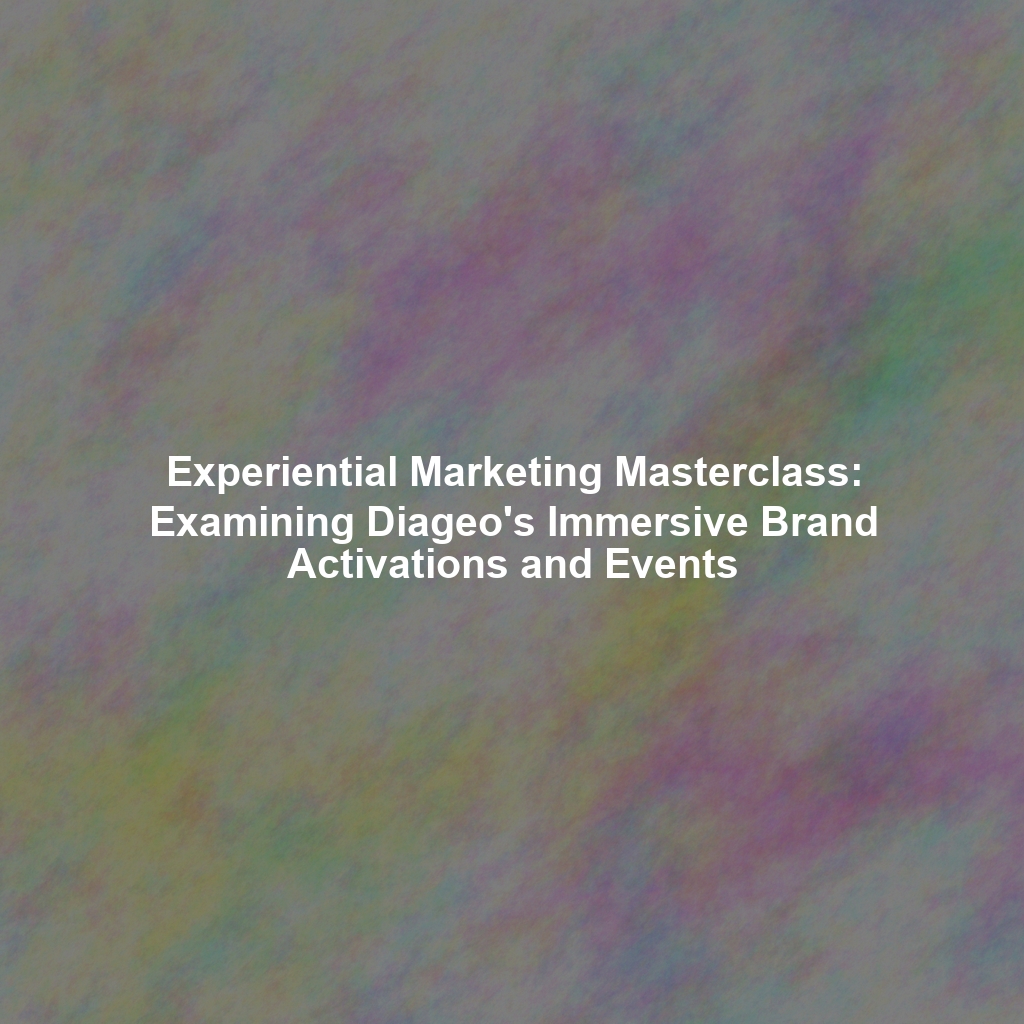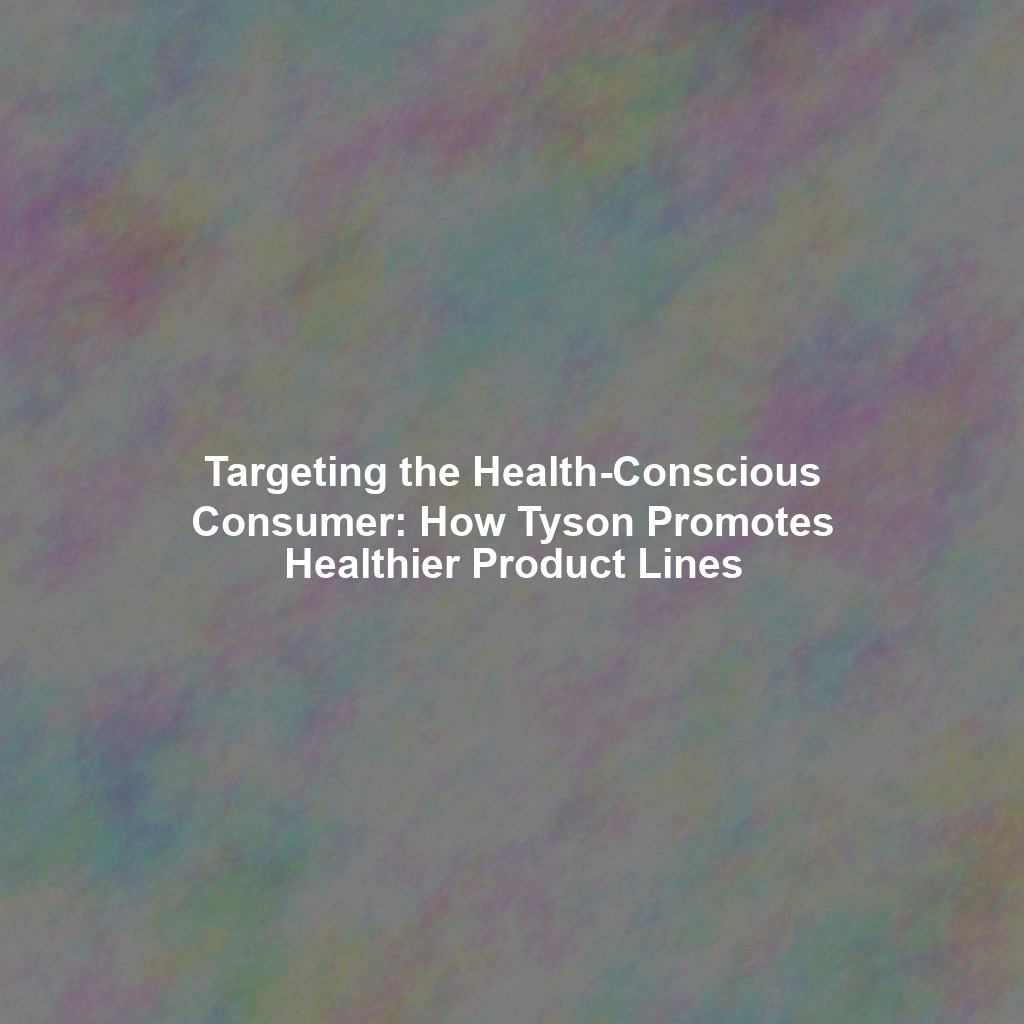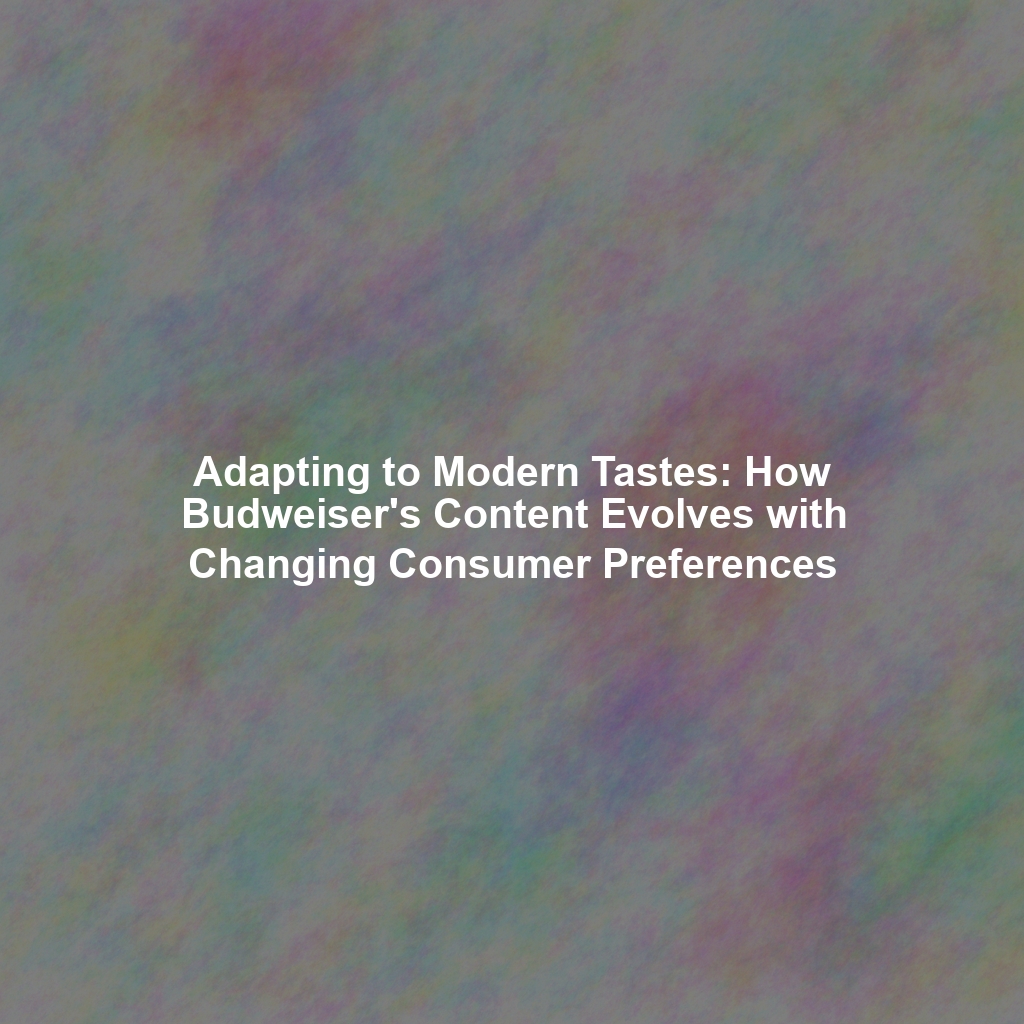In today’s crowded marketplace, brands need to do more than just advertise; they need to create meaningful connections with consumers. Diageo, a global leader in beverage alcohol, understands this implicitly. Their approach to experiential marketing isn’t just about throwing parties; it’s about crafting immersive experiences that resonate with their target audience, foster brand loyalty, and ultimately drive sales. This article delves into Diageo’s masterful use of experiential marketing, exploring successful activations, distillery tours, and events that truly bring their brands to life.
The Power of Immersive Experiences: Diageo’s Philosophy
Diageo recognizes that consumers are seeking authentic and memorable experiences. Their marketing strategy centers around creating these moments, moving beyond traditional advertising to engage all five senses. This approach aims to forge an emotional connection with the brand, turning consumers into advocates. They are not just selling a product; they are selling an experience, a lifestyle, and a story.
Brand Activations that Resonate: Case Studies
Diageo’s success lies in understanding its diverse portfolio of brands and tailoring activations to each one’s unique identity. Here are a few examples:
Guinness Open Gate Brewery: An Experiment in Flavor
The Guinness Open Gate Brewery in Baltimore is a prime example of experiential marketing done right. It allows visitors to sample experimental beers not widely available, take brewery tours, and learn about the history and brewing process of Guinness. This activation not only drives sales at the brewery but also generates buzz and reinforces Guinness’s reputation for innovation and quality.
ROI: While specific ROI figures are not publicly released, the Open Gate Brewery has significantly increased brand awareness and positive sentiment towards Guinness in the US market. Its success has led to expansion and increased production, demonstrating a clear positive impact.
Johnnie Walker Blue Label Experiences: Luxury & Exclusivity
Johnnie Walker Blue Label activations focus on creating exclusive and luxurious experiences. This includes private tastings, bespoke cocktail events in high-end venues, and partnerships with luxury brands. These activations reinforce the brand’s premium positioning and appeal to affluent consumers seeking sophisticated experiences.
ROI: These activations contribute to increased sales of Johnnie Walker Blue Label, a premium product with high profit margins. By associating the brand with luxury and exclusivity, Diageo strengthens its perceived value and justifies its price point. Sales uplift is estimated to be between 10%-15% in regions where these activations are heavily promoted.
Tanqueray Gin Pop-Up Bars: Urban Sophistication
Tanqueray’s experiential strategy often involves creating stylish pop-up bars in urban centers. These bars showcase the versatility of Tanqueray gin in cocktails, offering interactive experiences like gin masterclasses and themed events. This approach effectively reaches a younger, trend-conscious audience and positions Tanqueray as a sophisticated and contemporary gin brand.
ROI: Pop-up bars generate immediate sales and drive social media engagement. The increased visibility and positive associations translate into increased off-premise sales in the surrounding areas. ROI is often measured by social media reach and engagement, as well as the increase in local bar and retail sales. Diageo estimates a 5-8% increase in sales in targeted areas following these activations.
Distillery Tours: A Journey into Craftsmanship
Diageo owns numerous iconic distilleries, offering tours that provide a behind-the-scenes look at the whisky-making process. These tours are not just educational; they are immersive experiences that allow visitors to connect with the heritage and craftsmanship of brands like Talisker, Lagavulin, and Oban. From guided tastings to exploring historic sites, these tours create lasting memories and strengthen brand loyalty.
Distillery tours provide a direct revenue stream and boost local tourism. More importantly, they create brand ambassadors. Visitors who have experienced the distillery firsthand are more likely to become loyal customers and recommend the brand to others.
The Importance of Data & Measurement
Diageo’s experiential marketing isn’t just about creating fun events; it’s about achieving measurable results. They utilize data analytics to track engagement, measure ROI, and optimize future activations. Key metrics include attendance, social media reach, sales uplift, and brand sentiment. By carefully analyzing the data, Diageo ensures that its experiential marketing efforts are delivering a tangible return on investment.
Future Trends in Diageo’s Experiential Marketing
Diageo is constantly evolving its experiential marketing strategy to stay ahead of the curve. Emerging trends include:
- Virtual and Augmented Reality: Exploring new ways to create immersive experiences using VR and AR technology.
- Personalization: Tailoring experiences to individual preferences based on data and insights.
- Sustainability: Incorporating sustainable practices into all aspects of experiential marketing.
Conclusion: A Legacy of Experience
Diageo’s success in experiential marketing stems from a deep understanding of its brands and its consumers. By creating memorable and immersive experiences, Diageo fosters brand loyalty, drives sales, and builds a lasting legacy. Their commitment to innovation and data-driven decision-making ensures that their experiential marketing strategy remains at the forefront of the industry, continuing to captivate and engage audiences worldwide. By focusing on authenticity, quality, and emotional connection, Diageo has truly mastered the art of experiential marketing, setting a benchmark for others to follow.
 Skip to content
Skip to content

